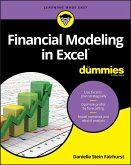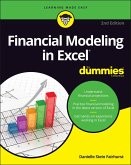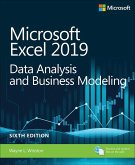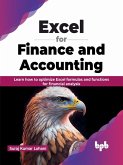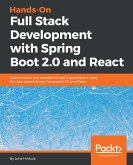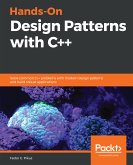Key Features
- A non data professionals guide to exploring Excel's financial functions and pivot tables
- Learn to prepare various models for income and cash flow statements, and balance sheets
- Learn to perform valuations and identify growth drivers with real-world case studies
Book Description
Financial modeling is a core skill required by anyone who wants to build a career in finance. Hands-On Financial Modeling with Microsoft Excel 2019 examines various definitions and relates them to the key features of financial modeling with the help of Excel.
This book will help you understand financial modeling concepts using Excel, and provides you with an overview of the steps you should follow to build an integrated financial model. You will explore the design principles, functions, and techniques of building models in a practical manner. Starting with the key concepts of Excel, such as formulas and functions, you will learn about referencing frameworks and other advanced components of Excel for building financial models. Later chapters will help you understand your financial projects, build assumptions, and analyze historical data to develop data-driven models and functional growth drivers. The book takes an intuitive approach to model testing, along with best practices and practical use cases.
By the end of this book, you will have examined the data from various use cases, and you will have the skills you need to build financial models to extract the information required to make informed business decisions.
What you will learn
- Identify the growth drivers derived from processing historical data in Excel
- Use discounted cash flow (DCF) for efficient investment analysis
- Build a financial model by projecting balance sheets, profit, and loss
- Apply a Monte Carlo simulation to derive key assumptions for your financial model
- Prepare detailed asset and debt schedule models in Excel
- Discover the latest and advanced features of Excel 2019
- Calculate profitability ratios using various profit parameters
Who this book is for
This book is for data professionals, analysts, traders, business owners, and students, who want to implement and develop a high in-demand skill of financial modeling in their finance, analysis, trading, and valuation work. This book will also help individuals that have and don't have any experience in data and stats, to get started with building financial models. The book assumes working knowledge with Excel.
Dieser Download kann aus rechtlichen Gründen nur mit Rechnungsadresse in A, B, BG, CY, CZ, D, DK, EW, E, FIN, F, GR, HR, H, IRL, I, LT, L, LR, M, NL, PL, P, R, S, SLO, SK ausgeliefert werden.



